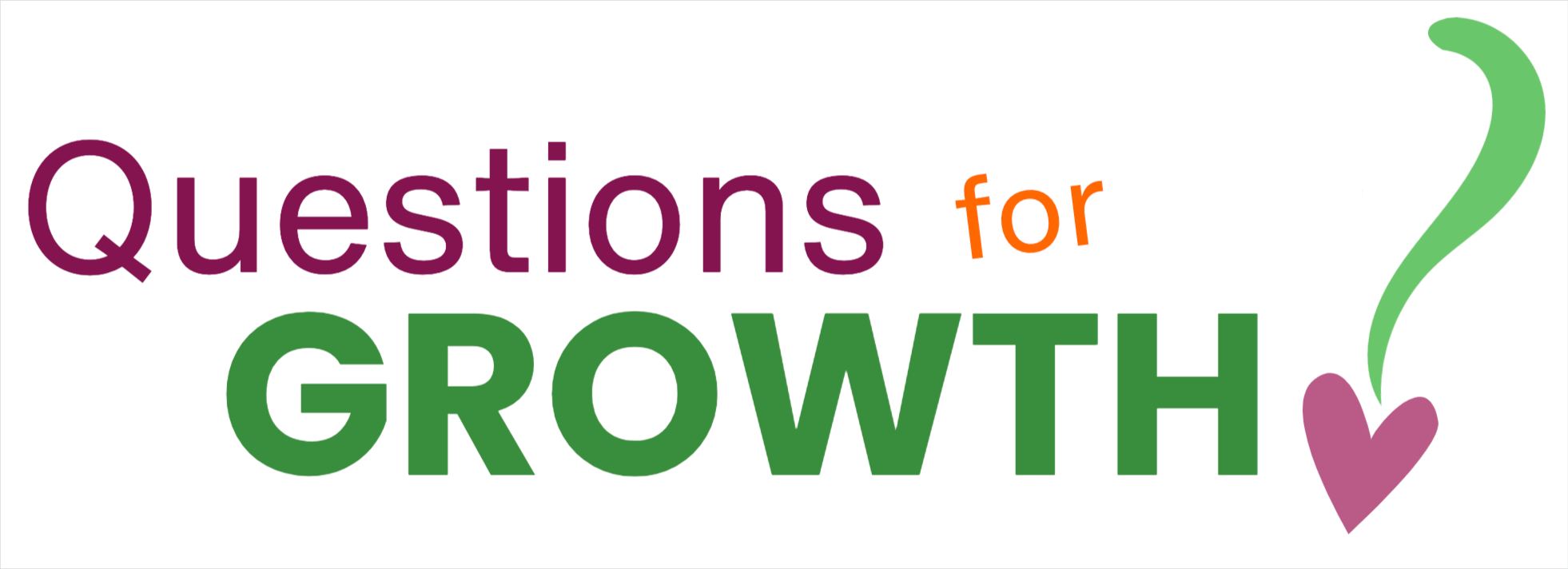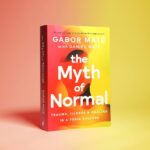In our hyperconnected, fast-paced society, there is a tendency for us all to make snap judgments. This instinctual approach to decision-making, while quick, is often marred by inherent biases and errors. It’s a dilemma many of us face, especially when juggling life’s complexities and uncertainties. Inspired by my recent reading of ‘The Book of Beautiful Questions’ by Warren Berger, I have been delving deep into the crucial role that well-framed questions can play in making better life decisions.
Warren Berger advocates for a more methodical, question-driven approach to complex decisions. The book suggests that by asking the right questions, you can better understand the ramifications of your choices.
The Pitfalls of Instinctual Decisions
Various studies suggest that our instincts, or our innate reactions to decision-making scenarios, may not be as reliable as we often assume. We are prone to built-in biases, misplaced self-assurance, unreasonable avoidance of risk, and various other judgmental errors.
Katherine Milkman from the University of Pennsylvania’s Wharton School, an expert on decision-making, states, “Scientific evidence doesn’t back the reliability of gut feelings; rather, it advocates a contrary approach to decision-making.” Psychologist and decision-making authority Daniel Levitin agrees, saying that if decisions are made on instinct, “your gut will more often be incorrect than correct.”
For significant life choices, it’s more prudent to place greater emphasis on evidence rather than emotions. By gathering insights from external resources and diverse viewpoints, we can work to overcome our own biases and narrow perspectives.
While it’s comforting to believe you’re correct and have that validated by like-minded individuals, this approach does little to advance learning, understanding, or decision-making.
One of the key roles questioning serves in enhancing decision-making is prompting us to pause and consider the situation from an alternative viewpoint.
Let’s consider an example. Imagine you’ve been offered two job opportunities. One has a higher salary but requires longer hours; the other offers less money but promises a better work-life balance. Instinct might drive you to immediately opt for the higher salary, equating it with greater success. However, this snap decision overlooks many other factors like job satisfaction, personal time, and long-term career growth.
Questions as Guiding Lights
A straightforward method to gain a new viewpoint is to pose the question: What advice would I offer if my friend faced this decision? This “advice” query is endorsed by various decision-making experts, such as Dan Ariely, a psychologist based at Duke University and author, who notes that paradoxically, we often provide more rational counsel to others than to ourselves.
Why does this happen? According to the Heath Brothers, research indicates that our advice to others usually focuses on the most critical factor, as it should. However, when contemplating our own situations, we become entangled in a myriad of significant and minor concerns.
Another unconventional yet effective self-distancing strategy involves asking oneself about a decision in the third person. For instance, instead of asking “What should I do?”, one might ask, “What should [Your Name] do in this situation?” Psychology professor Ethan Kross has found that this approach can result in more objective, rational thinking by allowing us an outsider’s view of ourselves and the situation. Kross notes that while elite athletes like LeBron James may be ridiculed for speaking about themselves in the third person, there is merit to this approach. According to Kross, this technique offers a structured way to engage in self-talk.
Research also indicates that decision-making is compromised during periods of fatigue, stress, or impulsive urgency, as choices may become emotionally charged rather than rational. Consider these two key questions: “Is immediate action required?” and “Is this the right time for a decision?”
Business consultant Todd Henry observes that many people stall their personal or professional progress due to decision-making paralysis fuelled by uncertainty. He advocates for regularly questioning oneself with: “Where in my current life am I hindered by indecisiveness?”
Some choices are particularly challenging due to either high stakes, uncertainty, or both. In these situations, asking “courageous” questions can offer the minimum clarity and assurance needed to make a bold move into the unknown.
Certain decisions are postponed due to a combination of high stakes and significant uncertainty. In these instances, posing “courageous” questions can furnish us with sufficient clarity and confidence to take that decisive step into the unknown.
“What is the worst that could happen?” is a straightforward yet potent question favoured by risk managers, coaches, and psychologists alike. While it may initially seem pessimistic due to its focus on worst-case scenarios, coupling it with a subsequent question—”How would I recover from that?”—can actually mitigate fears and bolster the confidence needed to embrace risk.
Entrepreneur Jonathan Fields points out that our fears around failure often manifest as vague, exaggerated thoughts. However, before taking on a risky endeavour, visualising the specific consequences of failure—and the recovery steps thereafter—can help clarify that failure is seldom absolute. According to Fields, acknowledging that most setbacks are recoverable can instil the confidence needed to move forward.
Test Your Ideas in Micro
In the corporate world, apprehensions about launching a new product can be alleviated by initially releasing a low-cost “beta” version prior to a full-scale introduction. Modern businesses striving for innovation should master two pivotal questions: “How can we generate more ideas?” and equally crucial, “How can we test those ideas quickly and cost-effectively?” Proficiency in addressing the latter question makes tackling the former more feasible and less fraught with risk.
Posing the question, “What if I knew I won’t fail?” eliminates the mental barrier of failure, encouraging more audacious and creative thinking. This tactic of using questions to temporarily lift real-world constraints is prevalent and useful. For instance, product developers often ask, “What if cost were not an issue?” to temporarily set aside practical limitations and foster innovative thought
Consider Your Future Self
By asking, “What would the future me decide?”, we can challenge our natural reluctance towards change and risk. Economist Steven Levitt conducted a study where participants agreed to let a coin flip dictate their choice in a difficult decision—whether it was a job offer or a marriage proposal. Six months later, those who had received a “yes” outcome were significantly happier than those who received a “no.” New York Times columnist Arthur C. Brooks interpreted the study to mean that, without external guidance like a coin toss, we tend to decline opportunities too often.
Questions that help us picture a future situation to inform a current decision are termed by Warren Berger as “crystal ball” questions. These are valuable because we often focus excessively on the immediate, neglecting long-term goals and repercussions. Ed Batista, an executive coach and Stanford University instructor, states, “Good decision-making is linked to our ability to predict future emotional states.” To counter short-term bias, we need to vividly imagine future scenarios. For instance, if presented with an opportunity, you might ask, as writer Rob Walker suggests, “Will I regret not making a change when the opportunity was ripe, years from now?” Visualising how your future self might feel can steer you towards a wiser long-term decision.
Remember that the “future you” will likely differ from the “present you,” adding complexity to long-term decision-making. Psychologist Dan Gilbert notes, “Human beings are works in progress that mistakenly think they’re finished.” His research shows people often underestimate their future changes in values and preferences. When grappling with decisions of long-term impact—such as joining a new organisation, relocating, or switching careers—a key question to ponder is: “Which choice will best enable my personal growth and evolution?”
To gauge present-day likelihood of regretting a future commitment, psychologist Dan Ariely suggests a “crystal ball” question known as the “cancel-elation” question. When invited to an event, ask yourself: “How would I feel if this invitation were suddenly cancelled?” According to Ariely, if your reaction is one of relief or elation, it indicates you’re accepting the invitation more out of obligation or discomfort with refusal, rather than genuine interest.
The choices you make today shape the narratives “future you” will recount. Consultant and author John Hagel recommends another “crystal ball” question for times when you’re faced with a decision between two different paths: “Which option will make for the better story five years from now?” According to Hagel, choosing the path that results in a more compelling story is seldom a decision you’ll regret later.
Avoid Decisions Based on Passion Alone
The notion of pursuing “passion” can be paralysing and problematic, argues author Cal Newport. He believes that passion is the outcome of hard work and becoming valuable in a particular field. Newport advises choosing a career that interests you, then excelling in it, as passion will likely follow. Similarly, author Elizabeth Gilbert has moved away from telling people to “follow your passion,” noting it places undue pressure on those uncertain about their life’s calling. Gilbert now encourages people to “follow your curiosity,” which may eventually lead to discovering a passion—or multiple passions.
Real-World Application
A pertinent example can be found in the realm of relationships. Instead of letting the initial spark dictate the course of a new relationship, questions like, “Do our long-term goals align?” or “How do we handle conflict?” can offer a more nuanced understanding, enabling better compatibility in the long run.
Turning Insights into Action
As Warren Berger explains in ‘The Book of Beautiful Questions’, the art of asking the right questions has transformative potential. Whether contemplating a career move, educational path, or personal relationship, these questions serve as invaluable tools for introspection. They compel you to look beyond immediate gratification and consider the wider implications of your decisions, thereby enriching your life in a meaningful way.
For big decisions, it’s advisable to rely less on emotions and more on concrete evidence. Soliciting opinions from external sources and diverse viewpoints can help us overcome our inherent biases and restricted perspectives.
The Power of Inquiry in Leadership
Difficult decisions require us to make choices under uncertain conditions, pushing us to face the unfamiliar. Thankfully, questions serve as an ideal instrument for these exact scenarios. According to Steve Quatrano of the Right Question Institute, a research group focused on inquiry, questions help us “structure our thoughts around our areas of ignorance.”
Leaders who ask bold, unconventional questions, for example, are often the most effective. They not only challenge their own assumptions but also inspire their teams to think critically. Asking the right questions can be likened to steering a ship; it sets the direction and pace for the journey ahead.
Despite being exceptionally busy, Apple’s late founder Steve Jobs made it a point to frequently ask foundational “Why?” questions as he visited different departments within his company. In areas ranging from marketing to accounting, Jobs would inquire, “Why are we doing things this way?” By adopting the questioning stance of an inquisitive four-year-old, he not only impacted himself but also compelled those around him to reassess their assumptions.
Questions as Social Glue
Beyond decision-making, questions also serve to establish meaningful connections. As multiple studies show, fostering genuine human connections contributes to a happier, more fulfilling life. Questions serve as the gateway to understanding and empathising with others, skills essential for any leader.
Consider Your Strengths
A lighthearted approach to identifying your strengths is to ask: “What are my superpowers?” Business consultant Keith Yamashita suggests this question to help uncover the unique blend of skills and traits you naturally bring to any situation. Once you’ve identified your strengths, you’ll be better equipped to leverage them effectively.
Journalist David Brooks distinguishes between those who pursue a “Well-Planned Life,” focused on individual agency, and those who live a “Summoned Life,” asking, “What are my circumstances calling me to do? What is my most useful social role?” Psychologist Angela Duckworth, author of “Grit,” advises college graduates to not only follow their interests but also to “seek purpose.” Rather than merely asking what you want to do, Duckworth suggests posing questions like, “How do I wish the world was different?” or “What problem can I help solve?” This shifts the focus towards serving others, which Duckworth argues is where it should be.
When searching for a new business venture or a fulfilling lifelong endeavour, consider asking this comprehensive question: “How can I apply my unique strengths to an area that naturally interests me and benefits others?” This question tackles the three core elements of passion—strengths, interests, and purpose. By addressing these factors, it can guide you towards pursuits that not only captivate you but also allow you to leverage your talents for meaningful impact.
Compose a Personal Mission Statement
To formulate your own personal mission statement or “life sentence,” consider asking yourself the following questions: “How do I want to be remembered?”, “What is most important to me?”, and “What change do I want to effect?” These inquiries can guide you in defining your life’s purpose and the legacy you wish to leave.
Concluding thoughts..,
The art of questioning can be a transformative tool in all settings. Not only does it help in making well-informed decisions, but it also acts as a social glue and fosters a culture of continuous learning and improvement. As we navigate complex decisions and unfamiliar situations, let’s make questioning our most trusted companion.









